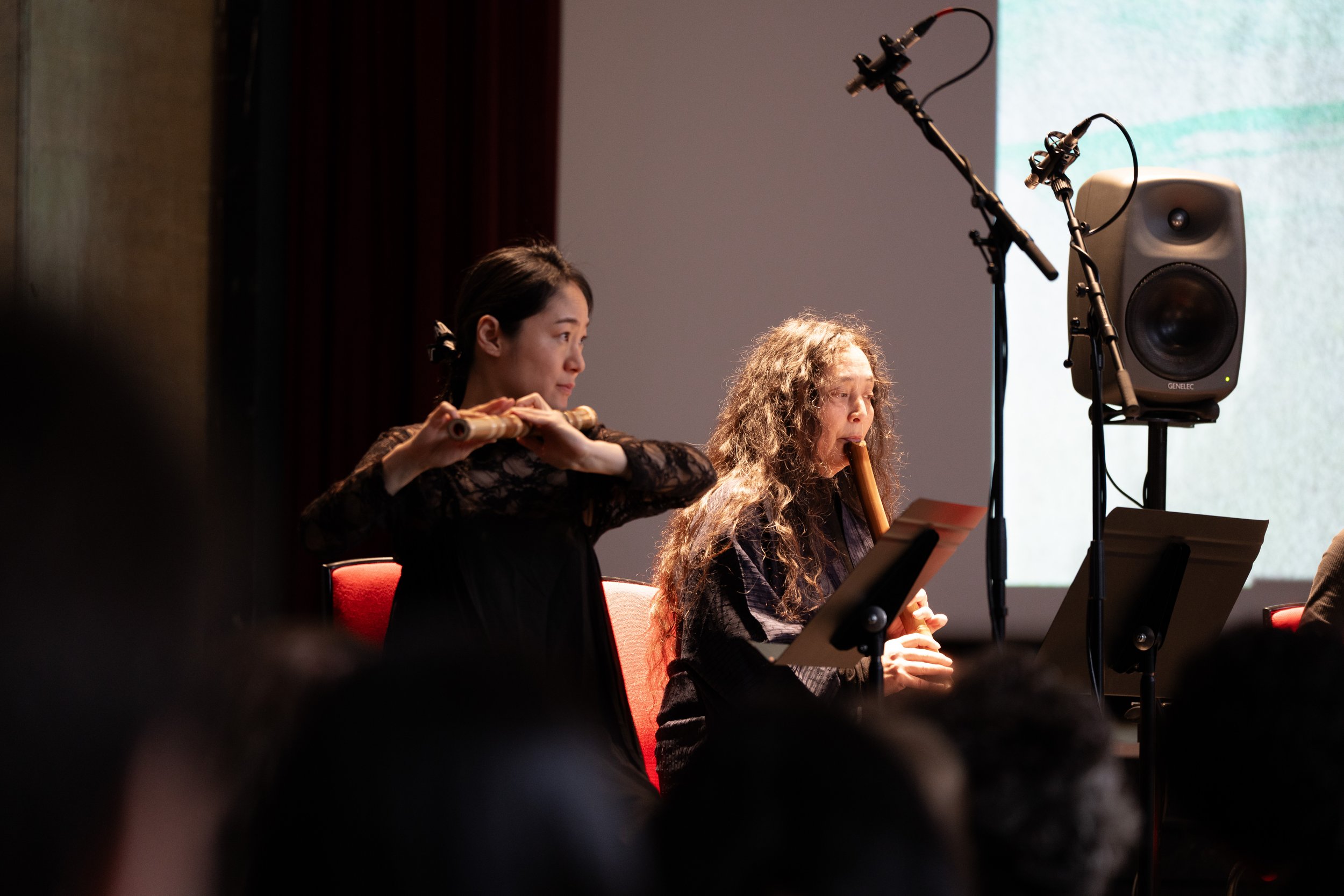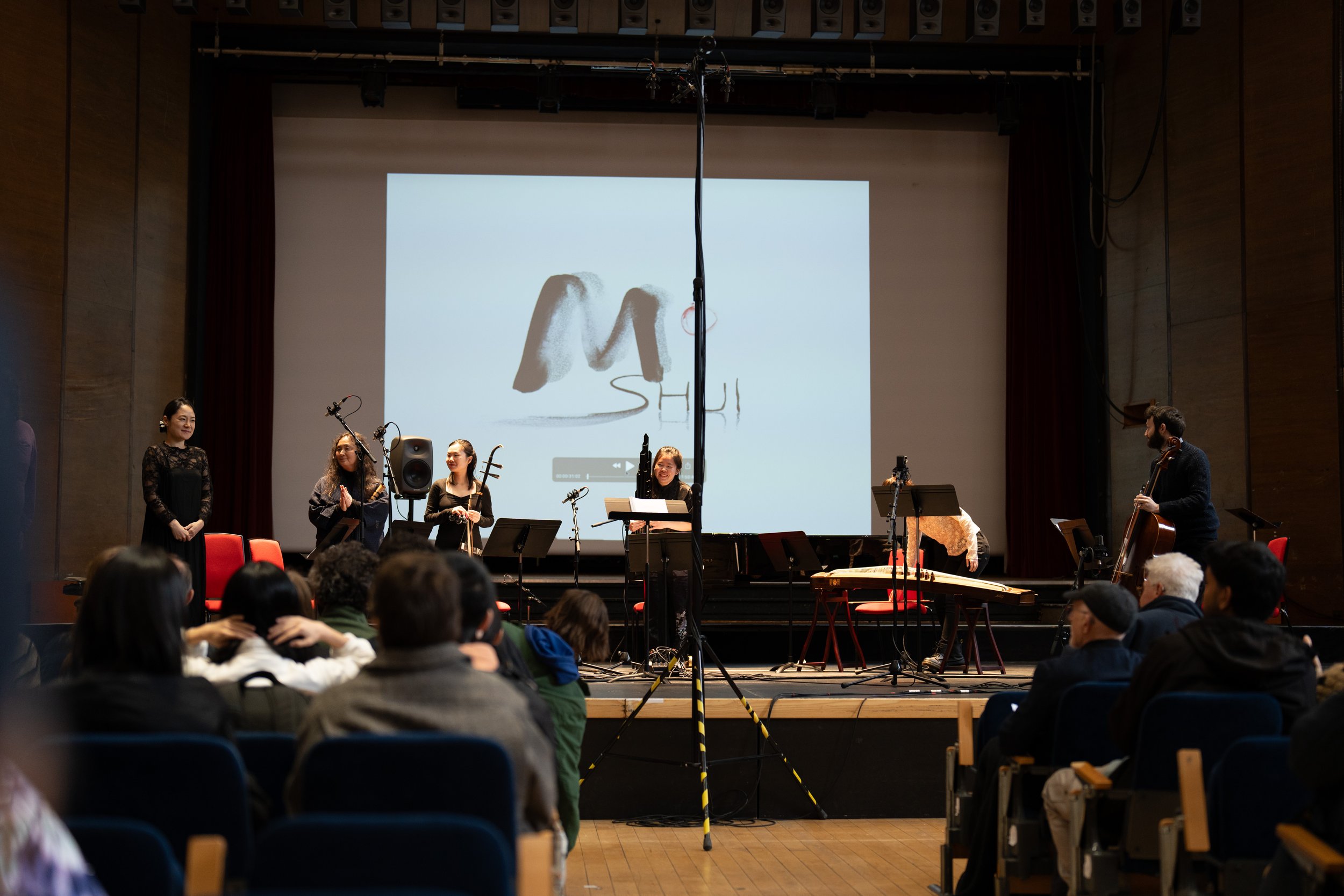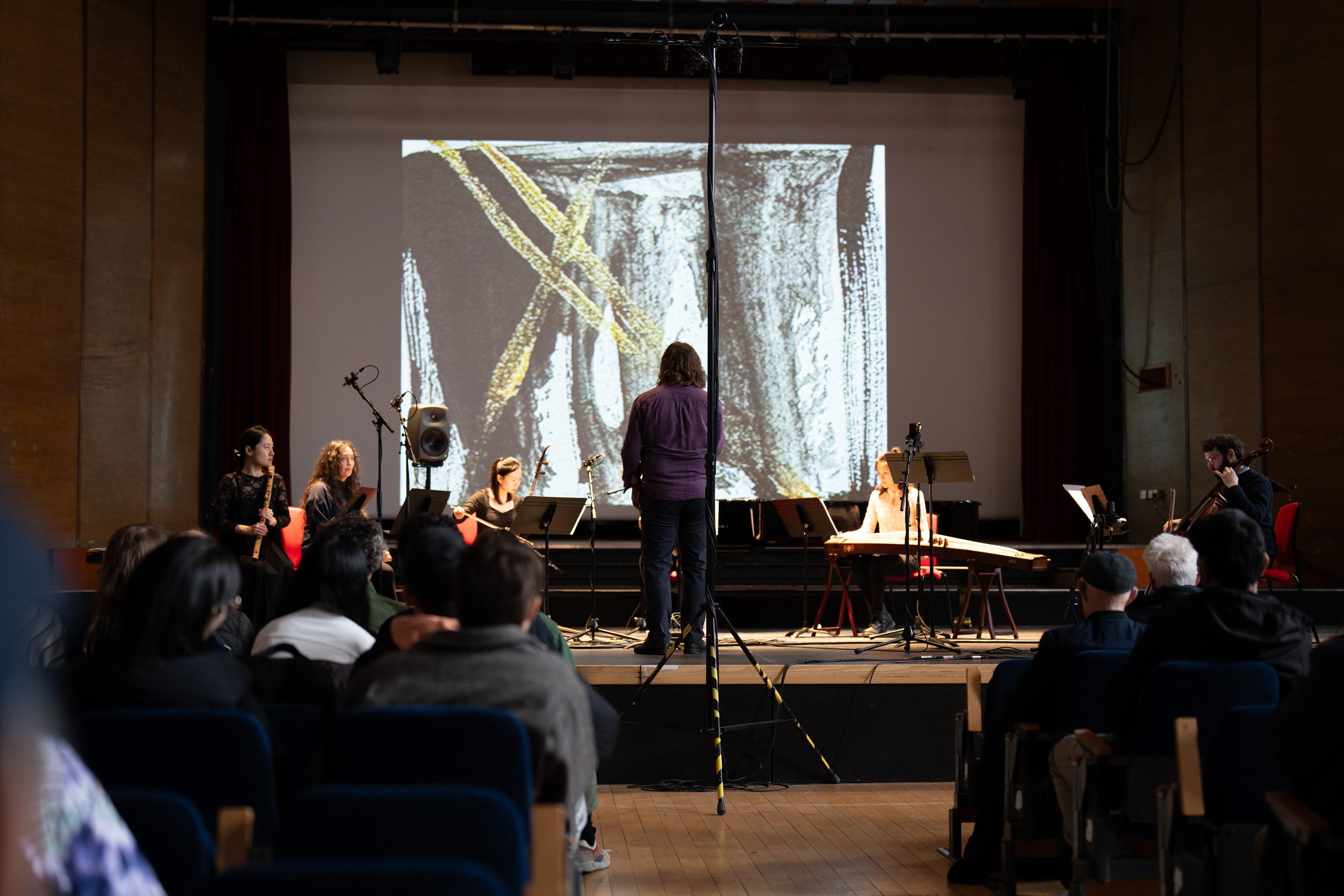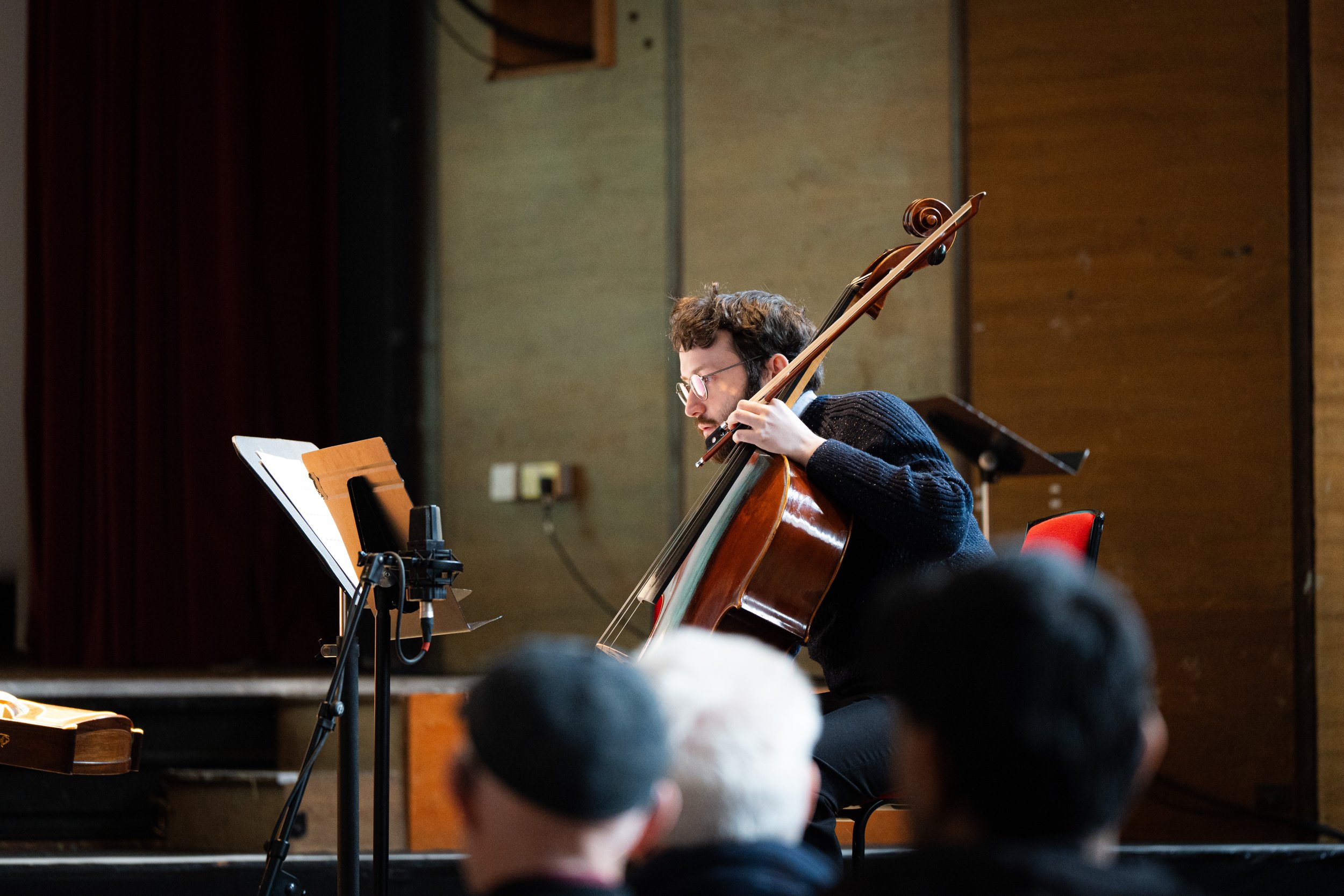
PROJECTS
BLANK CANVAS
Shui Mo @Bristol New Music, 28th April 2024
In its very first concert, new East Asian/Bristol ensemble Shui Mo (수묵; 墨 絵 ;水墨) interprets five premieres by Bristol composers Eunseog Lee (UK), Michael Ellison (USA/Turkey), Zhihong Guo (China), Yingying Wen (China) and Yuting Chang (Taiwan).









Art credit: Ting Huang
Art credit: Ting Huang
Kintsugi by Yuting Chang
The idea of this composition is derived from ‘’Kintsugi’, a traditional Japanese craft technique dedicated to repairing utensils. This technique uses lacquer and gold powder to bond crumbling objects and highlight cracks. Kintsugi encompasses the concepts of non- attachment, acceptance of uncertainty and fate as aspects of human life. It also presents the meaning of this technique philosophically to accept the imperfection and brokenness in life. Whether missing or broken, Kintsugi accepts it calmly and discovers the beauty in imperfections. The repaired utensils left behind clearly visible cracks sprinkled with gold powder. Although these golden lines looking like branches are not sparkling, they exude a charming splendour, as if they have frozen that broken moment. It articulates the art of fragmentation and time. We can consider it as a metaphor for healing ourselves, creating something more unique, beautiful and resilient in repairing broken things. Kintsugi is in three movements:
I. Impermanence II. Imperfection III. Brillance.
Camel Xiáng by Yingying Wen
We have water, we meet with food, then seasons.
I walk through, we walk through this desert.
Xiáng is a happy camel, which follows the light from the sun, the shadow from the moon, along its way. Xiáng carries its own water, meets with food, and each of the four seasons along its trek. My music is Camel Xiáng.
Shaking Mountains Roaring Waters by Eunseog Lee
The Vanishing Parasol Leaves by Zhihong Guo
The Parasol leaves drift away with the wind, each fallen leaf becoming a fragment of fleeting years. The composer attempts to capture their aimless drifting in the language of music, sometimes in tranquil contemplation, sometimes in restless agitation. Through music, one can sense the poetic melancholy of the falling leaves, evoking resonance within the audience towards life, time, and nature.
Art credit: Ting Huang
God is our refuge and strength, a very present help in trouble. Therefore will not we fear, though the earth be removed, and though the mountains be carried into the midst of the sea. (Psa 46:1-2)
Shan shui (山水), meaning ‘mountains and waters’, is a style of landscape art (originally developed in China, but later spread to Korea and Japan) using water and ink to depict mountains and rivers. Its aesthetic philosophy focuses on the communication of not what a landscape looks like, but what it feels like. This piece draws on shan shui aesthetics to compose a musical painting of the mountains and waters in Psalm 46. Initially, the music subverts the traditionally peaceful aesthetic by having the different musical traditions collide to convey a sense of natural catastrophe. They later re-align to portray the absolute safety of God’s refuge amidst nations in chaos, represented by a single mountain and river standing unmoved and untouched by the primordial destruction of the other mountains and seas that surround it.
Art credit: Ting Huang




